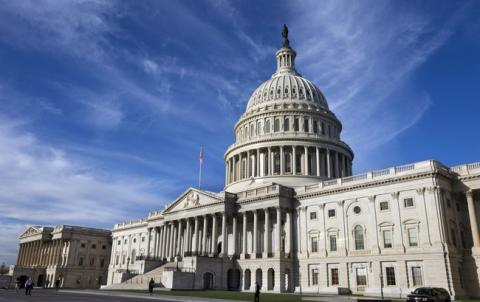"Sitting on the Pavement, Thinking About the Government"
What if we default on our debt? (Dylan, "Subterranean Homesick Blues")
Let's begin by clearing up a possible lingering misconception about debt and defaults. If Congress does not raise the debt ceiling and we default, does that mean the U.S. is broke? No. The U.S., like any country that 1) controls the creation of its own currency and 2) issues its debt in its own currency, cannot go broke. However, political calculations can impose deadbeat status on such a country.
What about other countries, why don't they have this problem? The answer is equally simple. With the exception of Denmark, no other wealthy industrial society has a debt ceiling - and Denmark's is set at over twice their actual level of government debt - and it is not a political football. So yes, the U.S. is, as our national meme says, exceptional. The debt ceiling - and any associated problems - are our own creation.
In the global world of finance, a significant part of our exceptionalism is the position of the dollar as the world hegemonic currency. The issuer of the hegemonic currency, today the U.S., can be a global debtor while at the same time providing a default risk-free asset (dollars) to facilitate global trade and capital accumulation. In more prosaic terms, the U.S. can run a balance of payments deficit while at the same time the U.S. dollar is the currency of choice for trade as well as for safety in times of financial panic.
Since the rise of the U.K. as a world power in the early 19th century, the capitalist world system has known two hegemonic currencies: the U.K. pound until WWI and the U.S. dollar after WWII. (In the interwar period, the two currencies shared hegemonic status.)
What if the government is forced to default because the debt ceiling is not increased?
In what follows, remember that predictions are very difficult, especially when they are about the future.
We can think about both short term and longer term impacts of a debt ceiling-driven default. In the short term there would be increased volatility in stock, currency and debt markets. We would likely see more days like those in Oct. 2008 when Lehman Brothers went under, Washington Mutual was seized by the FDIC and Merrill Lynch fled into the arms of the Bank of America. Much of this result flows from the hegemonic role of the U.S. dollar. If the currency and the debt instruments (treasury bills and bonds) that are at the core of the world financial system are no longer secure (as good as gold, as people sometimes say), many large institutions and individual investors would try to sell assets that were valued in dollars and buy assets that were valued in - what? The "what" is both the source of uncertainty and the reason the dollar might survive a short-term default. There are, as of today, no viable alternatives. A few years ago the Euro might have been nominated as the alternative hegemonic currency, but, due to the ongoing economic downturn in Europe, the Euro has lost caché - and value. China's renminbi (or yuan - your choice) is not yet a viable candidate.
Consider one small example of the short-term disruption that a politically-driven default could cause. There are many institutional investors who can own only AAA-rated assets, or who must have a large percentage of their debt holdings in AAA-rated issues - for example, probably your pension fund. If there is a politically-driven default, it is likely that a second major rating agency would drop their U.S. debt rating to AA from AAA. (S&P did so in 2011, but neither Moody's nor Fitch followed suit.) This would, at least in theory, stimulate large sales of treasury securities from entities that would have to seek other AAA-rated debt (such as Canada, Denmark Australia, Finland, etc). The result would be increased interest rates for additional U.S. borrowing and thus increased federal government expenditures.
The possible long-term results are perhaps more intriguing. Just in the past week, the EU and China have announced an agreement to denominate a significant portion of trade between the two areas in the Euro and renminbi (yuan) without the intermediate step of the dollar. Agreements such as this one suggest the possibility of a longer-term decline of the dollar's hegemonic role: no long-running trade deficits, no currency of last resort during financial panics. If that were to occur, our privilege of purchasing imports and borrowing across borders more cheaply than others would evaporate. But capitalism in the modern era has never functioned without a hegemonic (or, as noted above, dual hegemonic) currency: we don't know what the new multi-polar currency world might look like but it would definitely not be the one we in the U.S. have grown up with.
It seems surprising that right-wing Republicans want to birth this unknown world.
During the 2008 financial panic, holders of financial assets fled to the dollar and the yen.
Yields on T-Bills with maturities in late October have spiked over the past few weeks.
[Bill Barclay is a member of the Oak Park Branch of Chicago DSA and founding member of the Chicago Political Economy Group.]


Spread the word